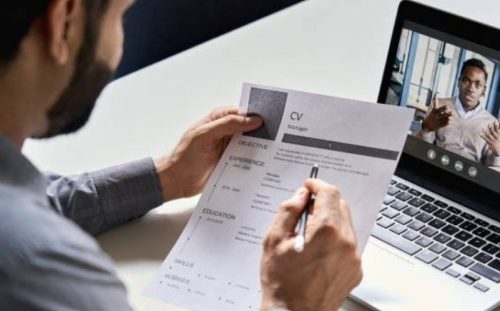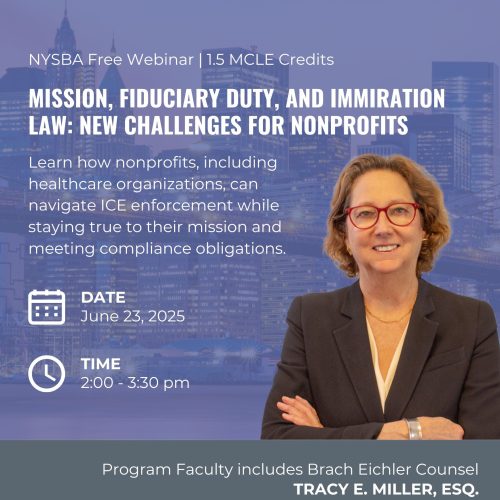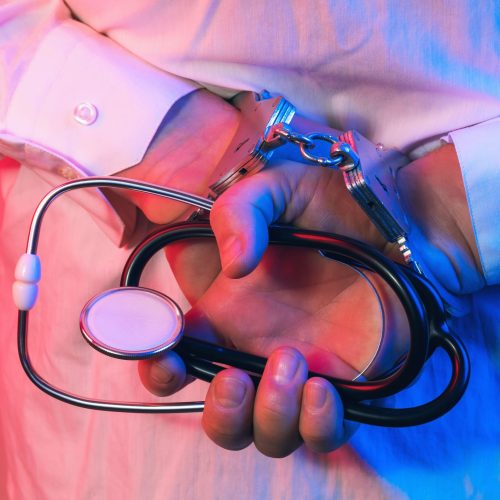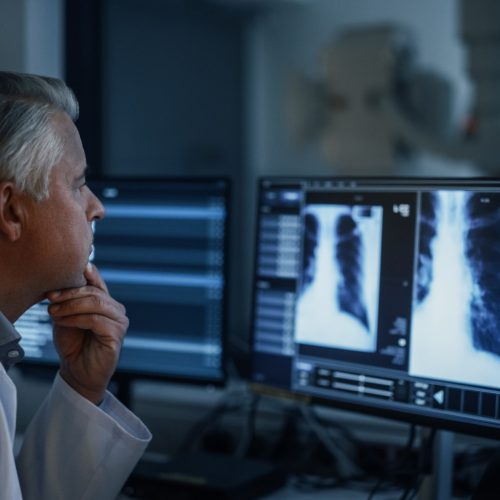Healthcare Law Alert: NJ Department of Health Updates COVID-19 Protocols for ASCs Resuming Elective Surgeries
June 19, 2020
On June 16, 2020, the New Jersey Department of Health (DOH) issued an Executive Directive setting out revised and additional COVID-19 protocols for ambulatory surgery centers resuming elective surgery and invasive diagnostic procedures. The DOH Executive Directive follows Governor Murphy’s Executive Order on May 15 allowing hospitals and ASCs to resume elective surgeries and invasive procedures. The DOH had previously issued guidance on May 19 concerning the required steps ASCs and hospitals must take in the resumption of elective surgeries. The new Executive Directive updates and supersedes that guidance, modifying it in part and ordering additional steps for ASCs in the areas of screening and cohorting patients; monitoring transfer hospital capacity; PPE, staffing, and transfer agreements; and visitors.
ASCs should carefully review the 11-page document to ensure compliance with all required steps. While most of the steps remain unchanged from the May 19 guidance, the key changes are the following:
Screening and Cohorting COVID-19 and Non-COVID-19 Patients
- ASC must not perform procedures on COVID-19 positive patients, unless excepted in Executive Order 109 as an urgent case, and nothing in the Executive Directive shall be construed to limit access to the full range of family planning services and procedures, including terminations of pregnancies, whether in a hospital, ASC, physician office, or other location.
- Facilities must cohort COVID-19 patients and non-COVID-19 patients.
- Facilities must test (specimen collected and result received) each patient within a six-day maximum before a scheduled procedure. (This is an important change from the original guidance that requires 96 hours.)
- If a test result is not received by Day 6, after collection, the patient must be retested.
- Any specimen collections (swab or saliva) are acceptable.
- The test performed by the laboratory must be a nucleic acid amplification test (such as PCR) and be either approved by the FDA, authorized by the FDA through an Emergency Use Authorization, or approved by the New Jersey Clinical Laboratory Improvement Services as permitted by the FDA.
- Antibody tests which determine whether or not antibodies to COVID-19 are present may NOT be used to fulfill the requirements of this Directive.
- It is recommended that ASCs contract with a laboratory and that the contract includes a prioritization of testing to ensure that results are received no later than six days from specimen collection.
- Facilities must counsel patients that they must do the following:
- Self-quarantine in their residence or other location following testing and up until the day of surgery.
- Within the location of self-quarantine, social distancing is necessary and wearing a mask is necessary when social distancing is not possible.
- Immediately inform the facility if there is any close contact with a suspected or confirmed case of COVID-19; (this requirement previously focused on any contact)
- Immediately inform the facility if there is any close contact with a person with symptoms consistent with COVID-19.
- Immediately inform the facility if the patient develops any symptoms consistent with COVID-19 during the time between when the COVID-19 test was collected and when the procedure is performed.
- Facilities must have a process:
- To screen patients for symptoms of COVID-19 or Influenza-Like Illness (ILI) prior to scheduled procedures.
- To ensure that the patient has worn a mask, has self-quarantined, and has social distanced since testing.
- Time-sensitive procedures that would endanger the health of the patient if delayed may be performed on a patient without a current test result so long as:
- The physician documents that the patient’s health will be endangered if the procedure is delayed; and
- The following infection control protocols are followed:
- All persons should refrain from entering the vacated procedure room until sufficient time has elapsed for enough air exchanges to remove potentially infectious particles. The time to enter the room depends on the procedure that was performed, the type of PPE the staff entering the room is wearing, and the exchange rate of the room.
- For aerosol generating procedures, follow CDC guidelines for administrative and engineering controls and PPE use.
- After the time for air exchanges has elapsed, the room should undergo appropriate cleaning and surface disinfection before it is returned to routine use.
- If air exchange information is not currently available, the ASC should refer to policies and procedures for care of an active tuberculosis patient.
Hospital Capacity Status
- The ASC must have a transfer agreement with at least one hospital that
- Shall not be on divert, and
- Shall be located in a region that has a downward or horizontal trajectory in hospitalization; and
- The statewide data on the date of each procedure demonstrates a downward or horizontal trajectory in:
- Hospitalizations
- ICU/Critical care utilization
- Medical Surgical bed utilization; and
- Ventilator utilization
PPE, Staffing, and Transfers
- Universal masking is required for all employees in the facility.
- Healthcare workers treating COVID-19 positive and presumptive positive patients must have appropriate training on, and access to, appropriate PPE.
- ASCs that have a transfer agreement with more than one hospital must confirm that at least one hospital is available.
- Staff shall be screened for COVID-19 per CMS recommendations which provide as follows:
Visitors
- As in the original guidance, no visitors are allowed, pediatric patients may have one parent or guardian, and same-day surgery or procedure patients may have one support person (this presumably refers to support such as physical or language assistance).
- The new Executive Directive no longer permits outpatients to be accompanied by an adult (who presumably is not there for support purposes).
Reporting Metrics Regarding the Resumption of These Procedures
- ASCs must report data associated with this Executive Directive on a daily basis (previously a weekly basis) through the NJHA portal.
If you have any questions about this alert or any other Healthcare Law issue, please contact:
John D. Fanburg, Managing Member and Chair, Healthcare Law, at 973-403-3107 or jfanburg@bracheichler.com
Joseph M. Gorrell, Member, Healthcare Law, at 973-403-3112 or jgorrell@bracheichler.com
Carol Grelecki, Member, Healthcare Law, at 973-403-3140 or cgrelecki@bracheichler.com
Susan E. Frankel, Associate, Healthcare Law, at 973-364-5209 or sfrankel@bracheichler.com
Related Practices: Healthcare Law
Related Attorney: John D. Fanburg, Joseph M. Gorrell, Carol Grelecki












